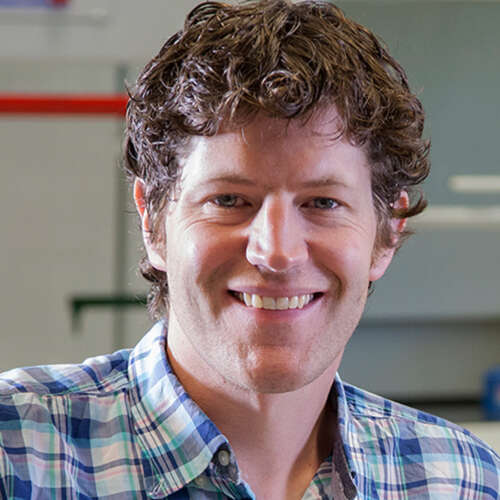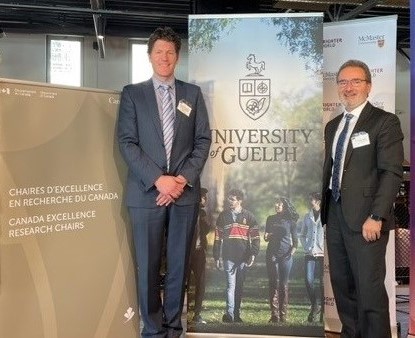The federal government announced the appointment of water quality researcher and engineer Dr. David McCarthy as the Canada Excellence Research Chair (CERC) in Waterborne Pathogens: Surveillance, Prediction, and Mitigation at the University of Guelph, an initiative that aims to develop novel devices and technologies to ensure the safety of water in Canada and around the globe.

The CERC is among the most prestigious and generous awards available in Canada, bringing with it federal funding of $8 million over eight years that supports world-renowned researchers and their teams to establish ambitious research programs at Canadian universities.
As CERC he will bring his expertise in mitigating the risks of waterborne pathogens with novel devices and technologies to the School of Environmental Sciences within the Ontario Agricultural College.
“This is the first time that the University of Guelph has hosted this prestigious research chair,” said Dr. Charlotte Yates, president and vice-chancellor. “I am very excited to warmly welcome Dr. David McCarthy to the University. U of G is a leader in One Health research, and Dr. McCarthy’s work will further advance our capacity and leadership in this collaborative, multidisciplinary field.”
Contributing to a One Health Approach
The arrival of McCarthy is an incredible contribution to U of G’s ongoing commitment to One Health research and positions the One Health Institute as a driver for advancements in biomonitoring, biosurveillance and biosecurity that will benefit communities around the world.
“With U of G’s roots in agriculture and veterinary medicine and our strengths in life and environmental sciences, our researchers have always appreciated how the health of humans, animals and their shared environment are bound together in what we now call One Health,” said Dr. Rene Van Acker, vice-president (research). “It’s terrific to have Dr. McCarthy come to us with a program of research that exemplifies this approach, and which will provide such benefits for communities globally.”

McCarthy said he was drawn to U of G by work being done in many areas of research relevant to waterborne diseases, including studies of pathogens, sensor development, and microbial transmission in environmental systems such as water and soil as well as support for interdisciplinary research through the One Health Institute and the Global Centre of Excellence in Biomonitoring, Biosurveillance and Biosecurity. To continue his work on mitigating waterborne disease, he will lead a transdisciplinary team of researchers from the College of Engineering and Physical Sciences (CEPS), the Ontario Agricultural College (OAC) and the Ontario Veterinary College (OVC).
The team aims to understand how pathogens move throughout urban water cycles, how they interact with humans and how to reduce the risks they pose as population growth, development and climate change intensify the challenges of managing waterborne health risks.
This research will work towards developing novel technologies to detect pathogens and their sources that are easy to use, low cost, open source and open hardware to encourage and enable their use in all parts of the globe by people from many walks of life.
McCarthy’s research team includes Dr. Aichen Chang, Department of Chemistry, CEPS; Dr. Kari Dunfield, School of Environmental Sciences (SES), OAC; Dr. Amy Greer, Population Medicine, OVC; Dr. Lawrence Goodridge, Department of Food Science, OAC, Dr. Marc Habash, SES OAC; Dr. Huiyan Li, School of Engineering, CEPS; Dr. Edward McBean, School of Engineering, CEPS; Dr. Heather Murphy, Department of Pathology, OVC; and Dr. Nicole Ricker, Department of Pathology, OVC.
